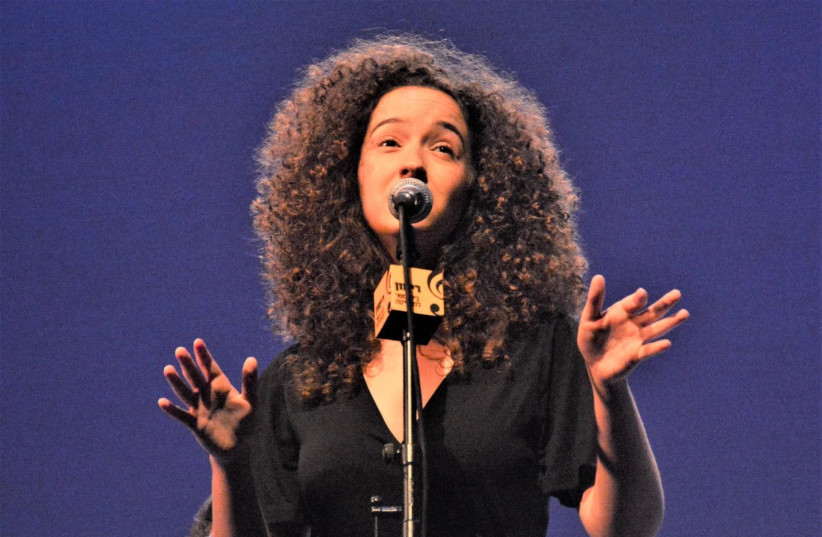If you’re in search of top-quality home grown Israeli jazz music, look no further than the students at Rimon Music School in Ramat Hasharon. At least, that’s what the prestigious Berklee College of Music in Boston must think. A delegation from the school just spent time in Israel auditioning students to attend next year for the final year of their studies.
Rimon School of Music, founded in 1985, is Israel’s foremost music school for jazz and contemporary music. It is also one of the founding members of the Berklee Global Partners; the two schools have maintained close ties, both academically and musically, for two decades.
The Berklee Global Partners (BGP) program allows students from all over the world to begin their studies in their home country and finish them at Berklee, thus getting the benefit of all Berklee has to offer while cutting down on American university costs. Many international students also apply for and receive scholarships which further reduce the cost.
Israel's students at Berklee in Boston
Each year, Rimon sends roughly 15 students to Berklee. According to Izhar Schejter, an alumnus and former professor at Berklee, who now teaches at Rimon and acts as a liaison between the two schools, one can find about fifty Rimon students studying at Berklee at any given time.

“First and foremost it’s an academic relationship,” Schejter explained. “Over the years personal relationships, musical relationships developed.
“And we continue always to have students from Rimon go to Berklee so it’s an ongoing relationship that continues to develop musically and personally.”
As a matter of policy, Berklee auditions all of its applicants in person. Thus, each year when application season rolls around, the college sends out delegations all over the world to audition international students. Marek Dykta, assistant director of admissions at Berklee, has been coming to Israel for auditions since 2013.
“I’m always very happy to come here,” Dykta said. “I’ve been coming... since I started working for Berklee. My first trip abroad was Tel Aviv, Israel.”
He emphasized that the “level of talent [at Rimon] is outstanding,” explaining that many Rimon students are not only accepted to the program, but also receive scholarships as well.
One such hopeful student, Yazeed Sakhnini from Nazareth, is seeking a Berklee education because, as he explained, “we are living internationally.”
He wants to blend different aspects of music from different cultures to make “really good music for this next generation.”
Sakhnini grew up in a family of musicians, beginning on the classical violin and eventually branching out to other instruments as well as becoming a vocalist. He and his siblings formed a band several years ago, a process which began, “sitting in a room and fighting,” Yazeed fondly remembers.
THE SIBLINGS, he explained, came up with ideas “that we couldn’t have done if we were doing it alone.” Since those first days of hashing it out together in a room, the band, called Sakhnini Brothers, has come out with two albums and has performed around Israel. They make Arabic-language Christian worship music in their own unique style.
Sakhnini is very excited about the prospect of studying abroad. “I’m looking forward to [taking] this bigger step,” he said, “and [making] the music that I always wanted to hear.”
He intends to take advantage of Berklee’s diversity: “Melody, harmony, rhythm. If we mix them together from all over they will create something beautiful.”
The Sakhnini brothers’ music can be found on Spotify or on their band’s website www.sakhninibrothers.com.
Noa Blumer, another hopeful, is also excited but nervous to move abroad. She was exposed to jazz in the womb by her mother, Naomi Feldman Blumer, who is an accomplished saxophonist and music teacher. Noa began playing piano as a small child and began classical voice lessons in middle school. To hear her tell her life story, she could not possibly have followed a path that did not hold jazz music at its center.
“To leave home, to leave Israel, is very scary” she confessed. But she is equally aware of and attracted by the fact that Berklee holds a treasure trove of opportunity.
Her live performance on the evening of December 7 was a testament to her years of training and born talent. She was a delight to behold on stage, confident and relaxed. Her deep sultry voice was made for jazz and it is abundantly clear that she could not be anything other than a star. She is on Spotify, and a handful of her live performances can be found by searching her name on YouTube.
Yazeed hopes to pursue music production so that he can amass the tools needed to create the large, multicultural compositions which he envisions for the future.
He also had a message for those coming from religious Arab backgrounds like himself:
“Speaking as an Arab, I would like to encourage families to encourage their children to make art, say what they think, and take [creative] studies seriously. These studies can make a difference for the good. We are a minority. A lot of times, we want to say something or... we want to play music or we want to paint something. These abilities are really important for the human being to live. And it gives an opportunity to do this good thing and it’s better than doing something else.”
These students, and the dozens of others at Rimon applying to Berklee this year, have a promising future ahead of them no matter what path they take going forward. And, despite the limitations put on travel in the last few years because of COVID, the Berklee-Rimon relationship is stronger than ever.
